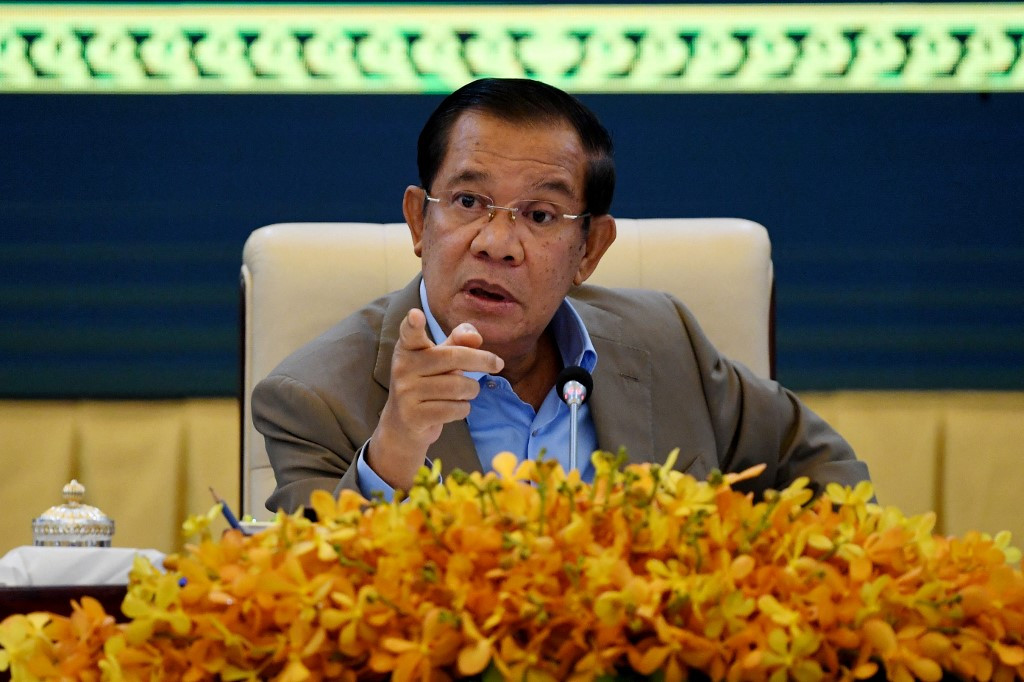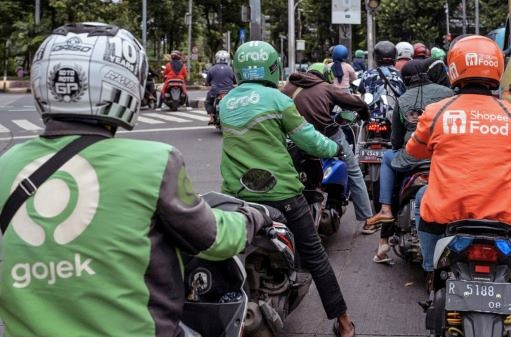Popular Reads
Top Results
Can't find what you're looking for?
View all search resultsPopular Reads
Top Results
Can't find what you're looking for?
View all search resultsA human rights test for Hun Sen and ASEAN
While we cannot generalize with certainty specific countries’ situations, the overall picture is grim, and Southeast Asia is certainly not a torch bearer on the human rights front.
Change text size
Gift Premium Articles
to Anyone
I
t is certainly good news that the Regional Comprehensive Economic Partnership (RCEP) entered into force at the beginning of 2022. The region desperately needs trade and good investment – and, with them, partnership with economic powerhouses like China, Australia, Japan and New Zealand, all nations joining the ASEAN members in this new transformative pact.
A strong economy and strong economic relations are essential to lifting the region out of poverty and truly building forward better, and that’s why the RCEP is an important milestone that should be celebrated.
Yet if we truly want the best for this community of nations, then we need to get out of our comfort zone and talk about less trendy issues, especially topics that are hard to digest for a good number of member states.
I am talking about human rights, an area where, unfortunately, ASEAN is not a trailblazer.
With Cambodia and its leader Hun Sen now chairing the community for 2022, even the most optimistic among us might feel, at best, disillusioned about the future of human rights in the region.
A recent report by Forum Asia on the performances in the region of national human rights institutions (NHRIs), constitutional bodies mandated to protect and uphold human rights, depict a serious and grave scenario where human rights defenders are often attacked and the role of human rights bodies ignored.
While we cannot generalize with certainty specific countries’ situations, the overall picture is grim, and Southeast Asia is certainly not a torch bearer in the human rights front. In such a scenario, what should we expect from Cambodia’s chairmanship?
Hun Sen began with his much-criticized visit to the junta in Myanmar, legitimizing the generals illegally in power with the apparent view that perhaps it was the only way to end the bloody and messy stalemate. Even if we give the Cambodian prime minister the benefit of the doubt, subsequent news from Myanmar has not been encouraging, with Aung San Suu Kyi recently convicted on three charges to four years of imprisonment.
Yet there is another way that Hun Sen can make a difference and help improve the human rights architecture in the ASEAN: help transform the ASEAN Intergovernmental Commission on Human Rights (AICHR), deemed the sleepiest and most toothless regional human rights body in the world.
No one is truly expecting that the body can match the best regional human rights institutions overnight, but even some small steps can make a difference. Last year, under the Brunei chairmanship, nothing transformative happened, but thanks to commitment and determination of some of the AICHR representatives, something actually moved in the right direction.
An official self-assessment of the AICHR’s work has been initiated and room has been made to include a human rights perspective in the ASEAN Recovery Framework. In addition, respect for children’s rights and the overall rights of persons with disabilities were discussed.
The world’s opinion about Hun Sen won’t drastically change because, at the end of the day, he must be judged by what he is not doing to promote human rights and democracy on his own country, but still, this is an action where, we might say, he could leave a lasting legacy at the ASEAN level.
I am talking about pushing his peers to move forward with the process of review of the so-called Terms of Reference that were supposed to be revised long time ago but which regional dynamics never allowed.
Yet there has been an agreement, a so-called ASEAN consensus, on reviewing the terms, made by the ASEAN foreign ministers in 2019, and for such a purpose, it was decided that a panel of experts should be appointed. Since then, not much has happened, but interestingly, Cambodia is one of the few countries that made the move to name a national representative to this panel group.
That’s why Hun Sen should ensure that this panel is convened at the earliest time, and for this to happen, he needs to directly pressure his peers in ASEAN. Moreover, he should ensure that all the member states show commitment and vision in appointing their new representatives to the AICHR as a new biennial cycle is starting with 2022.
Good news has come from Jakarta, where its representative to the commission, Yuyun Wahyuningrum, a steadfast human rights promoter, has been reconfirmed till 2024. The decision to reappoint Yuyun shows how serious President Joko “Jokowi” Widodo is at embracing human rights, at least within the region.
Certainly, he can do more to promote bottom-up democracy and overall respect for human rights at home, but comparatively (and we know that the benchmarks are, unfortunately, low) he is doing something.
In this regard, hopefully Putrajaya, too, will follow through with reappointing his own representative, Eric Paulsen, another member who can help make the commission relevant.
What we need from the Cambodian chairmanship in 2022 is not just convening the technical panel but the finalization of bolder terms of reference, ensuring that the AICHR itself has a voice in the discussions rather than just depending on the experts.
The commissioners can steer the debate and keep the ball rolling by involving civil society and the public in general more thoroughly. We need to find creative ways to keep the pressure on and ensure that the leaders of ASEAN truly take the work of the AICHR seriously.
For most of them, it is going to be very convenient to keep focusing on economics and trade, but we also need to face some inconvenient truths, and the need to embrace human rights is one of them.
The AICHR should stop being considered a joke. It must be given broader powers, including, one day, the power to open investigations and inquires.
For the time being, it would be good enough to have a clear mechanism for citizens to be able to file their human rights complaints. A platform is already there, and it is called AICHR.
Hun Sen and the entire chairmanship of Cambodia will be tested in the area of human rights. Many of us are ready to be surprised.
***
The writer comments on social inclusion, youth development, regional integration and the SDGs in the context of Asia-Pacific.










